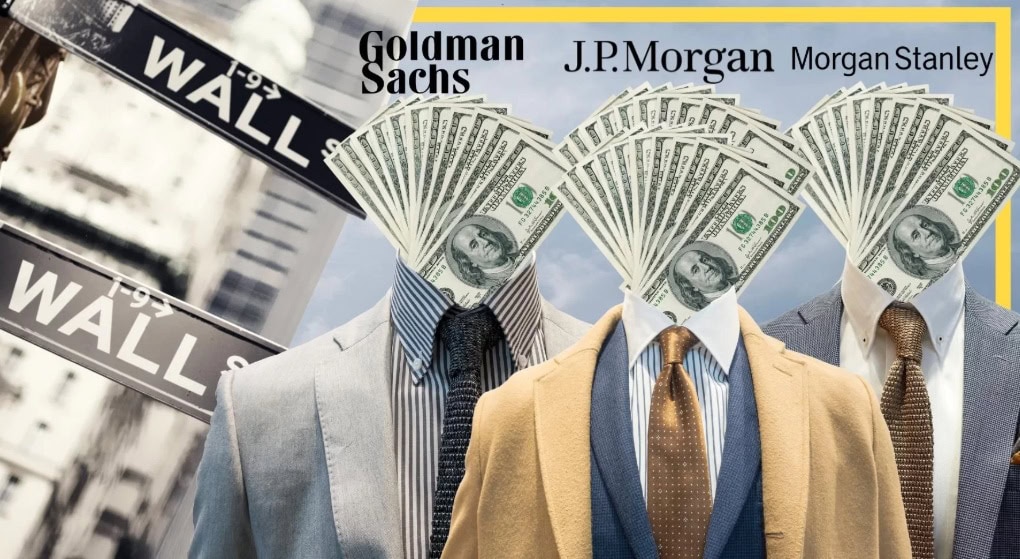Justin Sun, the founder of TRON and an advisor to Huobi, is a slippery one. He continues to launch copycat platforms and manipulate the market, most recently by taking $815 million of TUSD, a stablecoin which he effectively accomplished a recent hostile takeover, out of circulation.
Next, he turned around and used $865 million to print more stUSDT (or staked Tether), over which he exercises near total control, and finally, he deposited them in a lending protocol named after himself. It looked like a blatant trick to cause a massive spike in its market cap.
Sun has been cagey about what he’s up to. He has responded to inquiries laconically, telling Dylan LeClair that the TUSD reserves were being used to buy “t-bills.” He also told Blockworks that the transactions were personal and had nothing to do with Huobi.
The moves, accomplished over a total of 16 transactions, doubled Sun’s position on JustLend, which now stands at $1.5 billion. This comes on the heels of a confusing array of sketchy product launches and controversial acquisitions, but there’s a strategy behind these seemingly disconnected events.
An Insecure Platform Run by a Confidence Man
A few days after this mysterious event, Huobi suffered a $8 million hack, which is peanuts compared to the $2.8 billion in assets held on Huobi, the sixth largest among crypto exchanges. Sun stated that Huobi’s “multi-backup, multi-signature cold wallet system ensures 100% security.”
However, on the heels of a July data breach that exposed two years’ worth of customer data, it’s pretty clear that Huobi’s security is not up to snuff.
Perhaps, most intriguingly, he didn’t say anything at all on Chinese social media. It’s especially odd because Sun has carefully tried to maintain high-level contacts in Chinese society in hopes that he could tap that market again if the law changes. Sun sought out a well-regarded and influential mentor connected to the Communist Party and issued obsequious statements about his allegiance to China. All for naught, it would seem.
Time for a Re-Brand!
And so it was that Sun decided to rebrand Huobi as HTX, which was probably the worst branding decision in history, just below Musk’s ill-conceived decision to chuck the Twitter brand. As such, the stigma of Sam Bankman-Fried (SBF) and FTX hovers over Sun and his projects like a poltergeist. However, it’s as if Justin Sun doesn’t understand that FTX is a tainted brand.
Bloomberg wrote that there are echoes “beyond the name.” FTX was disproportionately dependent on its native token, using it for some loans and large chunks of its books. Huobi relies on its native token, Huobi Token (HT), so it’s especially strange that Justin Sun continues to plug his involvement in propping up the HT, telling Bloomberg News, “I would see myself as one of the biggest [HT] holders.”
Blockchain research companies like ChainArgos, Blocksec, and Messari have wondered why HTX has refused to be transparent about its reserves, unlike Binance, for example.
Justin Sun allegedly owns around 60% of HTX reserves, which are held in three cryptocurrencies “associated with Justin Sun.”
That is actually less than SBF’s ownership of FTX, which is not to say that HTX is more stable than FTX was before the crash. HTX is extremely top-heavy and concentrated in a way that led to FTX’s collapse.
The stablecoin now accounts for just 5% of HTX reserves, compared with around 30% at bigger rival Binance. We’ll return to this.
Sun the Salesman
Not to be deterred, Sun has been making the rounds in crypto conferences and making media appearances to tout his brand and pump the growing “comprehensive” ecosystem for trading, including JustLend DAO, WinkLink, SunSwap, and SunIO, as well as TronDAO.
ICYMI: @justinsuntron shared the #TRONNetwork's roadmap for #DeFi at @kbwofficial. 🇰🇷
— TRON DAO (@trondao) September 28, 2023
With platforms like @DeFi_JUST, @defi_sunio, and the oracle solution @WinkLink_Oracle, @trondao is positioning itself at the forefront of DeFi. 🔥
🎥 Watch now:https://t.co/FZY0jfTeKQ pic.twitter.com/YWr7bT1wd2
Notice two of those platforms actually carry Sun’s name, a sign of just how grandiose his image of himself is.
In a recent commercial, Sun is shown drinking tea in a spaceship, until he receives notice that “hackers are shorting crypto.” At that point, Sun becomes a digital hero who delivers an airborne punch to defeat a hooded character flooding the world with purple coins, representing FUD, I suppose.
🚀🔒 Defending the crypto frontier with unwavering determination! #TRON remains steadfast in safeguarding the future of digital assets. #TRX pic.twitter.com/RVijaqzUmK
— H.E. Justin Sun 孙宇晨 (@justinsuntron) September 21, 2023
Sun posted the video on the platform formerly known as Twitter, writing “Defending the crypto frontier with unwavering determination.” Sun was then depicted with blue starry sunglasses as the hero of crypto.
The level of BS was alarming, and users quickly labeled the video “cringe.” What seems clear is that Sun views himself as a messianic figure.
Sun Launches stUSDT on Huobi Earn
Sometimes, it seems like the walls are closing in and Justin Sun is sure to be arrested. That is when he turns over the table and pitches a new product. And say what you will about Justin Sun, but he is a shrewd salesman. He is cool under pressure and his English doesn’t falter during his frequent media appearances. For a native Chinese speaker, that cannot be easy.
Sun most recently launched staked Tether (stUSDT), and from July to mid-September, he amassed $1.8 billion in investment on Huobi Earn, leaving competing DeFi platforms in the dust.
Users deposit their stablecoins on the platform, choosing between an array of coins and real-world assets, in which Huobi Earn can in turn choose to invest those funds.
It sounds a lot like the relationship between FTX and Alameda, except that Huobi Earn is more explicit about what it might do with the funds. Huobi Earn guarantees that holders of the stUSDT can withdraw their funds at 1-to-1 at any time.
Data provided by DefiLlama and HTX reserves shows that about $400 million of Huobi Earn users’ funds have been converted from Tether into the staked product since July. HTX’s stockpiles indicate the changing composition of customer assets, so stUSDT now accounts for about 14% of the total. Whether clients converted their stablecoin into stUSDT or if HTX Earn did so on their behalf is unknown, and a bit worrying.
The huge shift in the holdings is concerning because HTX depends on its Tether reserves, but Huobi Earn is sucking away those reserves as users choose to stake their Tethers. HTX’s stockpile of Tether has declined by 75%, from $584 million to $146 million.
One might assume that Tether and staked Tether are associated. Not so!
In fact, a Tether spokesperson told CryptoSlate that stUSDT, is “an independent project and is not affiliated with Tether.”
It’s a similar situation with TUSD, the stablecoin launched by Archblock, which is now suing Justin Sun.
Archblock Founder Claims Justin Sun Was Secret TUSD Acquirer in Lawsuit (Not exactly a shocker) pic.twitter.com/ybTPmSOmtk
— db (@tier10k) July 17, 2023
DON’T JUMP ON THE BANDWAGON!
For those who pay attention to Justin Sun’s projects, this is not surprising. He often seeks to emulate the success of others without substantial innovation on their products. He just launches a copycat product or platform, or just buys it outright. Then, he tries to claim credit for it and build his image as a crypto superhero.
For those who invest in Sun’s house of cards, the bill will eventually come due. There’s a reason why he is facing various lawsuits and the authorities in various jurisdictions are waiting to arrest him on fraud charges. At #DisruptionBanking, we already chronicled Sun’s storied past in a lengthy post that you can check out.
Consider: No other major exchange has its fortunes so closely linked to a DeFi project, according to Jonathan Reiter, the CEO of ChainArgos, which tracks digital asset flows. If Huobi Earn prospers, so does HTX, but conversely, if there’s a run on Huobi Earn, HTX or Justin Sun will be obliged to prop it up, which already happened on August 8 with a $200 million infusion to HTX from a wallet supposedly tied to Justin Sun, although he denies it.
A Method to the Madness?
Justin Sun seems to be attempting a piecemeal takeover of the stablecoin ecosystem. In 2017, he started with a shitcoin (by his own admission), TRON, and has been scheming since then to construct an ecosystem that parallels the vibrant innovation of Ether. It will not end well, and as usual, many media outlets are sitting on their hands instead of reading the writing on the wall.
Observe: Bloomberg said that Justin Sun’s actions since taking over Huobi were “at times courting controversy along the way.” Ya think? Bloomberg is great, but c’mon. Tell the people what they need to know: DON’T JUMP ON THE BANDWAGON!
Blockworks said that the exploit with $800 million TUSD “raised eyebrows.” That’s all?
Protos went the furthest, writing, that Sun has been “on a streak of questionable decisions” and that “his brazenness seemingly become out of control” with the minting of $800 million worth of “his own stablecoin TUSD.” Wait, the creator of TUSD is suing Sun who is not the owner.
Since most media outlets are afraid of telling the truth, we are left to read between the lines. As usual.
Author: Tim Tolka, writer, journalist, and BI researcher
The editorial team at #DisruptionBanking has taken all precautions to ensure that no persons or organizations have been adversely affected or offered any sort of financial advice in this article. This article is most definitely not financial advice.















